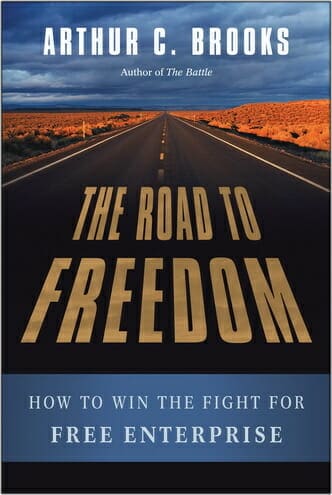Which is better: socialism or capitalism? Does one make people kinder and more caring, while the other makes people greedy and more selfish? In this video, Dennis Prager explains the moral differences between socialism and capitalism, and why anyone who wants a kind and generous society must support one and oppose the other.
Free Market


Choices: A Sovereign Democracy Or A Federal Dictatorship
Here is an “introduction” to BREXIT (the documentary) by Pat Condell
Here is a must watch documentary on the issues at stake in Europe… which have eschatological ruminations:
Here is the videos desrciption:
BREXIT THE MOVIE is a feature-length documentary film to inspire as many people as possible to vote to LEAVE the EU in the June 23rd referendum.
BREXIT THE MOVIE spells out the danger of staying part of the EU. Is it safe to give a remote government beyond our control the power to make laws? Is it safe to tie ourselves to countries which are close to financial ruin, drifting towards scary political extremism, and suffering long-term, self-inflicted economic decline?
BREXIT THE MOVIE shows a side of the EU they don’t want us to see: the sprawling self-serving bureaucracy, the political cynicism, the lack of accountability, the perks, the waste, the cronyism, the corruption.
BREXIT THE MOVIE cuts through the patronizing intellectualism of the noble, higher goals of ‘Project Europe’, to reveal the self-interestedness of the political-bureaucratic class which runs and benefits from the EU.
BREXIT THE MOVIE highlights the danger of becoming a prisoner in an insular, backward-looking Fortress Europe. And it explores the exciting opportunities that open up to us when we look beyond the narrow confines of the EU.
BREXIT THE MOVIE looks to the future, arguing forcefully and persuasively that it is safer and wiser to live in a country which is free, independent, self-governing, confident and global.
For more information, visit www.brexitthemovie.com

Government Investing A Recipe for Failure
- “A fundamental principle of information theory is that you can’t guarantee outcomes… in order for an experiment to yield knowledge, it has to be able to fail. If you have guaranteed experiments, you have zero knowledge” ~ George Gilder
Interview by Dennis Prager {Editors note: this is how the USSR ended up with warehouses FULL of “widgets” (things made that it could not use or people did not want) no one needed in the real world. This economic law enforcers George Gilder’s contention that when government supports a venture from failing, no information is gained in knowing if the program actually works. Only the free-market can do this.}
From transportation to energy, and everything in between, should the government invest money in as many promising projects as possible? Or would that actually doom many of those ventures to failure? Burt Folsom, historian and professor at Hillsdale College, answers those questions by drawing on the fascinating history of the race to build America’s railroads and airplanes.

Frank Zappa a Free Market Guy


Capitalism Is Great ~ Paul Joseph Watson
By resisting capitalism, socialists are embracing an economic system that guarantees poverty and misery for the most amount of people. (This guy is part of Prison Planet/InfoWars, orgs I do not support.)

R.C. Sproul Jr. Discusses Socialism vs. Free-Markets
This course is based on R.C.’s book, Biblical Economics: A Commonsense Guide to Our Daily Bread. There is a multi-part playlist of his DVD series here. The below is part 5 of the series and deals with socialism versus free-markets:

India Awakens ~ Free-Markets and Choice
Via Libertarian Republican, watch the entire episode here.
India Awakes – Main Preview from Free To Choose Network on Vimeo.
By 2030, India is predicted to be the most populated country on earth. By 2050, it’s predicted to have the largest economy in the world. Poverty and other issues are still big challenges.
But in the past 20 years, nearly a quarter of a billion Indian people have been lifted out of poverty. Economic and political change are creating a growing middle class. India’s poor are overcoming their past, overcoming caste, and overcoming poverty. How?
- Click here to find out more about this program and airing times: http://freetochoosemedia.org/broadcasts/india_awakes/index.php
- Check out our Facebook page here: https://www.facebook.com/FreeToChooseNetwork
- Visit our media website to find other programs here: http://freetochoosemedia.org/index.php
- Connect with us on Twitter here: https://twitter.com/FreeToChooseNet
- Learn more about our company here: http://freetochoosenetwork.org/
- Shop for related products here: http://www.freetochoose.net/
- Stream from FreeToChoose.TV here: http://freetochoose.tv/

Loch Ness Socialism ~ FIREWALL (Updated: Scandinavian Social Contract)
The Myth
Gay Patriot introduces us to the myth often put forward by the left. This post by Gay Patriot will add to the video by Bill Whittle that follows it:
One of the myths Progressive Leftists elevate to “fact” by constantly repeating it to each other is the idea that Scandinavian countries are the closest on Earth fulfillment to their socialist dream utopia. ~ Gay patriot
…continuing…
Kyle Smith, writing in the NY Post, digs a little deeper and discovers that, like almost everything Progressive leftists believe, the Myth of Scandinavian Utopia really is as much a myth as the college rape epidemic, the genius of Barack Obama, or the popularity of gun control.
Visitors say Danes are joyless to be around. Denmark suffers from high rates of alcoholism. In its use of antidepressants it ranks fourth in the world. (Its fellow Nordics the Icelanders are in front by a wide margin.) Some 5 percent of Danish men have had sex with an animal. Denmark’s productivity is in decline, its workers put in only 28 hours a week, and everybody you meet seems to have a government job. Oh, and as The Telegraph put it, it’s “the cancer capital of the world.”
So how happy can these drunk, depressed, lazy, tumor-ridden, pig-bonking bureaucrats really be?
I think my favorite paragraph is where he cites the Scandinavian Social Contract as the “Ten Commandments of Buzzkill.”
“You shall not believe that you are someone,” goes one. “You shall not believe that you are as good as we are,” is another. Others included “You shall not believe that you are going to amount to anything,” “You shall not believe that you are more important than we are” and “You shall not laugh at us.”
They read like the 10 Commandments of Progressive Leftism…
Economics 101
In an excellent Bloomberg article entitled, “Booming Sweden’s Free-Market Solution,” the myth is dismantled in toto by Anders Aslund. Here is a snippet:
…From 1970 until 1989, taxes rose exorbitantly, killing private initiative, while entitlements became excessive. Laws were often altered and became unpredictable. As a consequence, Sweden endured two decades of low growth. In 1991-93, the country suffered a severe crash in real estate and banking that reduced GDP by 6 percent. Public spending had surged to 71.7 percent of GDP in 1993, and the budget deficit reached 11 percent of GDP.
TURNING POINT
The combination of the crisis and the non-socialist government under Carl Bildt from 1991 to 1994 broke the trend and turned the country around. In 1994, the Social Democrats returned to power and stayed until 2006. Instead of revoking the changes, they completed the fiscal tightening. In 2006, a non-socialist government returned, and Finance Minister Anders Borg, with his trademark ponytail and earring, has led further reforms. Sweden successfully weathered the global financial crisis that started in 2008, and the Financial Times named Borg Europe’s best finance minister last year.
Before 2009, Sweden had a budget surplus, and it has one again. For the past two years, economic growth has been 4 percent on average, and the current-account surplus was 6.7 percent in 2011. The only concerns are the depressed demand for exports caused by the current euro crisis and an unemployment rate that is about 7.5 percent.
Sweden’s traditional scourge is taxes, which used to be the highest in the world. The current government has cut them every year and abolished wealth taxes. Inheritance and gift taxes are also gone. Until 1990, the maximum marginal income tax rate was 90 percent. Today, it is 56.5 percent. That is still one of the world’s highest, after Belgium’s 59.4 and there is strong public support for a cut to 50 percent.
The 26 percent tax on corporate profits may seem reasonable from an American perspective, but Swedish business leaders want to reduce it to 20 percent. Tax competition is fierce in some parts of Europe. Most East European countries, for example, have slashed corporate taxes to 15-19 percent….
Reason.org Weighs in on the “Swedish” experiment, how it got its wealth, noting how it squandered it, and how it is returning to the pre-70’s ideology:
- Sweden is a powerful example of the importance of public policy. The Nordic nation became rich between 1870 and 1970 when government was very small, but then began to stagnate as welfare state policies were implemented in the 1970s and 1980s. The CF&P Foundation video explains that Sweden is now shifting back to economic freedom in hopes of undoing the damage caused by an excessive welfare state.
And do not think for a moment that the free-market has not allowed Sweden or other Nordic nations to get back on their feet. This is is pointed out in the following “101” presentation on economics:
The Above Video Description via Reason.org:
For those of us who place more trust in free markets than state-directed economies, we must inevitably (and repeatedly) confront the skeptical interlocutor who details the “successes” of Swedish social democracy. “If state intervention into the economy is so bad, high taxes so destructive, then why is Sweden such a success?” It’s an irritatingly simple question with a incredibly complicated answer, though I do recommend pointing out, when the conversation turns to health care and secondary education, that nothing, in a state the confiscates a massive portion of your income, is “free.” But as many have pointed out, during its boom years, Sweden was a pretty free market place; from the 1970s through the 1990s—when taxes and regulation dramatically increased—the economy slowed until it spun out in the early 1990s…
[….]
…So here is my bottom line: When some American pundit, with expertise is everything, explains why some European welfare state “works,” or how everything you know is wrong about taxing income at 75 percent, do a little digging, make use of Google Translate, and don’t trust that, because Swedes and Danes tell researchers that they are happy, the United States should introduce “daddy leave” and provide subsidies to syndicalist newspapers.
The best English-language explication of the Swedish model comes from my pal Johan Norberg, who wrote this brilliant piece for The National Interest a few years back. And watch my interview with Norberg on Swedish welfare politics here and on Naomi Klein here.
The following interview is Johan Norberg, author of In Defense of Global Capitalism, sits down with reason.tv’s Michael C. Moynihan to sort out the myths of the Sweden’s welfare state, health services, tax rates, and its status as the “most successful society the world has ever known.”
- See also the Mises article about the health care system entitled: “The Market is Taking Over Sweden’s Health Care.” See also “How Laissez-Faire Made Sweden Rich.”
National Review seems like a good place to continue the theme of showing how the Nordic countries have used the free-market system to recoup what it has lost with previous regulations that crippled free-enterprise. Here is a comparison between Sweden and Venzuala that was helpful in explaining how Sweden has less regulations that us in many places (a recent phenomenon BTW):
Talk to a Bernie Sanders voter about “socialism” — and they can be very insistent about using the word — and you’ll get paeans to Sweden, which is not a socialist country but a country with large, expensive welfare state. The distinction is not trivial: There is relatively little in the way of state-run enterprise in Sweden; the Swedish government is in fact only a 60 percent partner in the postal service. The Swedish government is, alas, in the casino business, albeit in a more transparent way than American government is. On the Heritage economic-freedom rankings, Sweden isn’t that far behind the United States. It has very high taxes, but taxes are not the only burden that governments put on the economy, not necessarily even the most important, and Sweden outscores the United States on a number of important metrics: free trade, property rights, freedom from corruption, investment freedom, monetary policy, etc. The United States’ small edge in the rankings comes mainly from relatively low taxes and a much less regulated labor market.
The Above Video Description:
To the American mind there may be nothing more quintessentially Swedish than the leggy, blond supermodel.
But there’s another Swedish model that inspires almost as much admiration—the Swedish economic model. With a generous welfare state and high living standards, Sweden seems to prove that socialism works. Much of the hope that swept Barack Obama into the White House rests on the belief that America could reach new heights under a regime of enlightened progressivism, that we could be more like the Swedes.
Not so fast, warns Stockholm University sociologist Charlotta Stern: “If an American told me that the US should be more like Sweden I would say I don’t think it’s possible.” The United States can centralize its health care system and pass other laws that mimic Sweden’s welfare state polices, says Stern, but it’s impossible to replicate a culture that allows those policies to operate about as smoothly as possible. Swedish bureaucracies inspire trust, but their American counterparts (DMV, TSA, IRS) inspire punch lines, if not outrage.
But America could emulate some of the Swedish policies that don’t require extensive bureaucracies. Take school vouchers. Teachers unions in America regard the idea as free-market radicalism, but families in Sweden enjoy universal school choice. Sweden adopted its famously progressive policies during the 1970s, but after years of sluggish economic growth the land of ABBA altered its course in the 1990s, adopting a host of free-market reforms, from deregulation to tax cuts.
Although much of the disco-era welfare state remains, economist Andreas Bergh credits the free market reforms with reviving his nation’s economy. “Sweden is moving in the market economic direction,” says Bergh, “but that does not mean America should be moving in the socialist direction.”
What if the two nations continue on in different directions? Maybe some day when America is looking for a way to rejuvenate its economy, pundits will point to a different kind of Swedish model. One that increases individual choice and competition.
“Sweden—A Supermodel for America?” is produced by Daniel B. Klein, and written and produced by Ted Balaker, who also hosts. Shot by Jonathan Liberman and Henrik Devell, with additional production support by Zach Weissmueller and Sam Corcos and post production by Hawk Jensen and Austin Bragg. Special thanks to Niclas Berggren, Martin Borgs, Nils Karlson, and the Ratio Institute.
A Challenge Directed At Me
In conversation about an audio upload to my YouTube Channel of Dennis Prager discussing Bernie Sanders, I was challenged with this:
- Sweden is not a Nato member so how does the US pay for Sweden defense? Pointing at Whittle and saying “because he say they do” won’t cut it.
To which I responded with a quote from an International Business Times article:
Finland is joining military exercises with other Scandinavian countries, as well as several members of NATO, in late May, Finnish media report. The maneuvers called Arctic Challenge will span 12 days, starting May 25, and include nine countries and close to 100 planes. The drills, over Sweden and northern Norway, come amid increased tensions between Russia and its Baltic and Nordic neighbors.
Sweden and Switzerland, which like Finland are not members of NATO, are expected to join the exercise, along with NATO members Norway, the Netherlands, Britain, France, Germany and the United States. Finland plans to send 16 F-18 Hornet fighter jets, while the other countries will supply Gripen “multirole” fighters, F-16s, Eurofighters and Jet Falcons, as well as transports and tankers, Russian news agency Sputnik reported. The Norwegian armed forces said the purpose of the Arctic Challenge exercise is to “learn to coordinate efforts in complicated flight operations conducted in cooperation with NATO.”
Russia has ramped up military activity along its borders with northern Europe, causing consternation in several Baltic and Nordic countries and pre-emptive actions to head off — or prepare for — a possible military crisis. Latvia, which reported a Russian submarine near its coast in mid-March, is beefing up security on its eastern border, while Finland recently began a letter campaign notifying some 900,000 reservists of their duties in a potential crisis. Sweden also intercepted four Russian planes flying over the Baltic Sea in March with their radios off. Russian jets have been intercepted in other instances while flying in European international airspace….
I also pointed out that this promise went back to the Cold War, and was not known about till a Swedish defense think-tank/security firm uncovered the agreements in 1994. The original story’s link has been lost, but it is here on FOI’s site. FOI’s “about us” page has this:
- FOI is one of Europe’s leading research institutes in the areas of defence and security. We have 1 000 highly skilled employees with various backgrounds. At FOI, you will find everything from physicists, chemists, engineers, social scientists, mathematicians and philosophers to lawyers, economists and IT technicians…. The Armed Forces and the Swedish Defence Material Administration are our main customers. However, we also accept assignments from civil authorities and industry. Our clients from the defence sector place very high demands on advanced research, which also benefits other customers.
Here is the info from the old article via WIKI:
Initially after the end of World War II, Sweden quietly pursued an aggressive independent nuclear weapons program involving plutonium production and nuclear secrets acquisition from all nuclear powers, until the 1960s, when it was abandoned as cost-prohibitive. During the Cold War Sweden appeared to maintain a dual approach to thermonuclear weapons. Publicly, the strict neutrality policy was forcefully maintained, but unofficially strong ties were purportedly kept with the U.S. It was hoped that the U.S. would use conventional and nuclear weapons to strike at Soviet staging areas in the occupied Baltic states in case of a Soviet attack on Sweden. Over time and due to the official neutrality policy, fewer and fewer Swedish military officials were aware of the military cooperation with the west, making such cooperation in the event of war increasingly difficult. At the same time Swedish defensive planning was completely based on help from abroad in the event of war. Later research has shown that every publicly available war-game training, included the scenario that Sweden was under attack from the Soviets, and would rely on NATO forces for defence. The fact that it was not permissible to mention this aloud eventually led to the Swedish armed forces becoming highly misbalanced. For example, a strong ability to defend against an amphibious invasion was maintained, while an ability to strike at inland staging areas was almost completely absent.
In the early 1960s U.S. nuclear submarines armed with mid-range nuclear missiles of type Polaris A-1 were deployed outside the Swedish west coast. Range and safety considerations made this a good area from which to launch a retaliatory nuclear strike on Moscow. The submarines had to be very close to the Swedish coast to hit their intended targets though. As a consequence of this, in 1960, the same year that the submarines were first deployed, the U.S. provided Sweden with a military security guarantee. The U.S. promised to provide military force in aid of Sweden in case of Soviet aggression. This guarantee was kept from the Swedish public until 1994, when a Swedish research commission found evidence for it. As part of the military cooperation the U.S. provided much help in the development of the Saab 37 Viggen, as a strong Swedish air force was seen as necessary to keep Soviet anti-submarine aircraft from operating in the missile launch area. In return Swedish scientists at the Royal Institute of Technology made considerable contributions to enhancing the targeting performance of the Polaris missiles.
Some More Discussion
In this first back-and-forth, I noted some of the above and got this response:
- Seems Sweden is searching for the viable balance of Capitalism and Socialism. Good for them. Bernie Sanders seeks the same.
To which I respond:
They want [and have] a lower tax rate than Sanders wants. They dumped their “wealth tax” and “death tax.” They lowered their corporate tax-rate and want it at 20% and below. Lessened regulations on businesses… on-and-on.
Bernie wants the 70’s through 90’s Sweden… I am down with the 2006 and beyond Sweden.
Someone else joined the discussion, and mentioned the following:
- My family is Swedish and I can tell you with 100% accuracy they are way better off than we are…. Across the board pretty much.
Again, I respond:
There is a Swedish economist in the post that from first hand experience (and expertise in his field) telling you they are where they are because of the free market and a reduction [greatly] of the welfare state/socialism enterprise. [And, BTW, they use the many life saving drugs produced by the profit motivated “Big Pharma” spending on R&D to extend the lives of their fellow Swedes.]
When you get all these health care services for “free” then people start taking them for granted, calling ambulances without second thoughts, and going to the doctor for simple things that you don’t really need to see a doctor for… False alarms for ambulances and fire trucks end up costing the government and indirectly tax payers huge amounts of money every year. Which is why Sweden has as of late started to reform its health care system by privatizing parts of it. Mind you, these are somewhat limited in scope, but people are able to pay now for private care (1-in-10 now have private insurance/health-care).
…The paradox is that America has been doubling down on government authority over healthcare with the Affordable Care Act, just as more and more European governments, including Denmark, England, Finland, Ireland, Italy, the Netherlands, Norway, Spain, and Sweden, have been forced by public outcry to address the unconscionable waits for care by introducing new laws. But it is even more essential for American voters to realize, and for our government leaders to acknowledge, what other countries are beginning to recognize all over the world. These governments have started to understand that the cure for their failed nationalized health systems is a shift to privatization. And citizens under government-dominated health systems are increasingly circumventing their own systems, pursuing private healthcare to solve the uniformly poor access to care and limited choices.
Let’s consider Sweden, often heralded as the paradigm of a successful welfare state. The facts tell a very different story. Having failed its citizens in healthcare access, the Swedish government has aggressively introduced private market forces into healthcare to improve access, quality, and choices. Although once entirely public, over a quarter of Swedish primary care clinics are now run by the private sector. Sweden’s municipality governments have increased spending on private care contracts by 50% in the past decade. Private nursing facilities now receive substantial public funding to care for patients. Widespread private sector competition has also been introduced into pharmacies to tear down the pre-2009 monopoly over all prescription and non-prescription drugs. Since the Swedish government sold over half of its pharmacies to private firms in 2009, 20 private firms entered the market and over 300 new pharmacies opened, not only improving accessibility but providing the first pharmacies ever to many small towns.
Moreover, despite the fact that an average Swedish family already pays nearly $20,000 annually in taxes toward healthcare according to Swedish economist Per Bylund, about 12% of working adults bought private insurance in 2013, a number that has increased by 67% over the last five years. Half a million Swedes now use private insurance, up from 100,000 a decade ago, even though they are already “guaranteed” public healthcare….
(Hoover Insitute, “Defining Ideas: The Surprising International Consensus on Healthcare“)

Wealth Creation IS NOT a Zero-Sum Game ~ Mantras
See Also: “Why Capitalism Works“
Capitalism, the exchange of markets did this:
- Since Deng Xiaoping began instituting market reforms in the late 1970s, China has been among the most rapidly growing economies in the world, regularly exceeding 10 percent GDP growth annually. This growth has led to a substantial increase in real living standards and a marked decline in poverty. Between 1981 and 2008, the proportion of China’s population living on less than $1.25/day is estimated to have fallen from 85% to 13.1%, meaning that roughly 600 million people were taken out of poverty.
Wealth and Wealth Creation IS NOT a zero sum game!
There are three kinds of games: win-lose, lose-lose, and win-win. Win-lose games, like basketball, are sometimes called “zero-sum games.” When the Celtics and the Bulls compete, if the Celtics are up, then the Bulls are down, and vice versa. The scales balance. It’s a zero-sum.
Besides lose-lose games, which most of us avoid, there are positive-sum or win-win games. In these games, some players may end up better off than others, but everyone ends up at least the same if not better off than they were at the beginning.
Millions of people think that free trade is a dog-eat-dog competition, where winners always create losers. This is the zero-sum game myth, which leads many to think that the government should somehow redistribute wealth. While some competition is a part of any economy, of course, an exchange that is free on both sides, in which no one is forced or tricked into participating, is a win-win game. When I pay my barber $18 for a haircut, I value the haircut more than the $18. My barber values the $18 more than the time and effort it took her to cut my hair. We’re both better off. Win-win….
…This leads nicely into the third point: wealth is not a zero sum game. This is economist jargon meaning everyone can win. Look again at the chart Gary Burtless put together. You will note that all segments of American society saw their incomes rise except the top one percent. If we had the data to do the chart again through 2014, we would see that everybody had higher incomes than fifteen years ago.
And this win-win idea is not just in terms of income. In a capitalist society, people get rich by making somebody else better off. J. K. Rowling became one of the richest women in the world by writing the Harry Potter series of books. All the people who bought the books believed that the books were worth more than the sale price otherwise they would not have bought it. Thus, J.K. Rowling wins and all her readers win. Both sides of a voluntary transaction are made better off. As long as government coercion is not involved, when you see someone getting rich, you know a lot of people are being made happy….

Why “Ron Paul Types” are Wrong About Foreign Policy and Islam
Radicalism –as we are dealing with today– has a more recent idealistic foundation, although I am well-aware that what the Islamic State is doing today is no different than what Muhammad did.
(NPR) …Qutb pointed out many things Americans take for granted as examples of the nation’s culture of greed — for example, the green lawns in front of homes in Greeley.
Ironically, Greeley in the middle of the 20th century was a very conservative town, where alcohol was illegal. It was a planned community, founded by Utopian idealists looking to make a garden out of the dry plains north of Denver using irrigation. The founding fathers of Greeley were by all reports temperate, religious and peaceful people.
But Qutb wasn’t convinced. “America in 1949 was not a natural fit for Qutb,” Siegel says. “He was a man of color, and the United States was still largely segregated. He was an Arab — American public opinion favored Israel, which had come into existence just a year before.”
In the college literary magazine, Qutb wrote of his disappointment:
“When we came here to appeal to England for our rights, the world helped England against the justice (sic). When we came here to appeal against Jews, the world helped the Jews against the justice. During the war between Arab and Jews, the world helped the Jews, too.”
Qutb wrote about Greeley in his book, The America I Have Seen. He offered a distorted chronology of American history: “He informed his Arab readers that it began with bloody wars against the Indians, which he claimed were still underway in 1949,” Siegel says. “He wrote that before independence, American colonists pushed Latinos south toward Central America — even though the American colonists themselves had not yet pushed west of the Mississippi… Then came the Revolution, which he called ‘a destructive war led by George Washington.'”
When it came to culture, Qutb denounced the primitive jazz music and loud clothing, the obsession with body image and perfection, and the bald sexuality. The American female was naturally a temptress, acting her part in a sexual system Qutb described as “biological”:
“The American girl is well acquainted with her body’s seductive capacity. She knows it lies in the face, and in expressive eyes, and thirsty lips. She knows seductiveness lies in the round breasts, the full buttocks, and in the shapely thighs, sleek legs — and she shows all this and does not hide it.”
Even an innocent dance in a church basement is proof of animalistic American sexuality:
“They danced to the tunes of the gramophone, and the dance floor was replete with tapping feet, enticing legs, arms wrapped around waists, lips pressed to lips, and chests pressed to chests. The atmosphere was full of desire…”
To Qutb, women were vixens, and men were sports-obsessed brutes: “This primitiveness can be seen in the spectacle of the fans as they follow a game of football… or watch boxing matches or bloody, monstrous wrestling matches… This spectacle leaves no room for doubt as to the primitiveness of the feelings of those who are enamored with muscular strength and desire it.”…
(see chapter one in The Looming Tower)
As Lawrence Wright in the Looming Tower has pointed out… even green lawns “enrage” Muslims against the West (see to the right).
Sorry left-libertarians, foreign policy Ron Paulists, and non-interventionists
A great article citing a study by some Oxford professor backing up what we here at Libertarian Republican have been saying all along – the reason they hate us is because we are open about liking to fuck women and our women are open about liking to fuck men.
[….]
From the UK Express, “SEX and WOMEN: The reason Islamic State extremists want to kill ALL westerners”:
The “pressing of sexual imagery on to the world” means western culture is hated in the rest of the world and leads to jihadists wanting to “kill people in the name of purifying the world”, Diarmaid MacCulloch said. The gay Oxford theological historian and presenter of the BBC’s Sex and the Church said the hatred of western culture reaches far and wide and can be seen in Boko Haram in Africa, in the Middle East and in Vladimir Putin’s Russia. He said: “It seems to me that it is about sex.
“A unique feature of western culture is that it loves talking about sex, it obsesses about sex, it presses sexual imagery on to the world. “Other cultures think about sex a lot but they do not talk about it and they find it intensely embarrassing and frustrating that the West talks about it.”
The enhanced role of women in society is another reason Islamic State comrades hate western culture, the professor added. He said: “The anger that other cultures feel towards western sexual openness, it is so much of the murderous anger which we are seeing in Boko Haram, Islamic State and other revivalist movements of the 20th century.
A Ron Paul “Flashback”
Libertarian Republican again confirms their long held position that our freedoms here in the West, and especially America, are what drives the Muslims hatred of us. NOT our foreign policy.
Front Page Magazine has an excellent article where they quote Eric Dondero of Libertarian Republican quite a bit in regards to how and what Ron Paul thinks:
Rep. Ron Paul believes the United States is a greedy, militaristic empire that brought 9/11 upon itself. He believes that Iran poses no threat to U.S. or Israeli security and that Iran deserves to have a nuclear weapon if it wants one. As for Israel, he does not think it should have ever come into existence as a Jewish state. Nevertheless, Ron Paul, whose crackpot beliefs would be disastrous for the United States and the free world if ever implemented, is a serious contender for the GOP presidential nomination.
With money, good organization, a demagogic message that has a surface appeal to voters looking for a radical break with the status quo and an enthusiastic cadre of supporters fueling his campaign, Paul has vaulted into the top tier of Republican presidential candidates in the Iowa caucuses, which he could well win on January 3rd. He is virtually tied with Newt Gingrich for second place in New Hampshire after the heavy favorite, Mitt Romney. Overall, Paul is currently running third in the RealClearPolitics average of national polls.
Paul’s foreign policy philosophy hearkens back to the pre-World War II “America First” isolationist movement that was shattered with the Japanese bombing of Pearl Harbor. In fact, Paul would have been right at home in that movement. According to Eric Dondero, a former senior aide to the congressman, Paul believed that the United States had no business getting involved in fighting Hitler in World War II. “He expressed to me countless times, that ‘saving the Jews,’ was absolutely none of our business,” Dondero said. “When pressed, he often times brings up conspiracy theories like FDR knew about the attacks of Pearl Harbor weeks before hand.”
Paul has harbored similar conspiratorial thoughts about 9/11. Dondero said that his former boss
engaged in conspiracy theories including perhaps the attacks were coordinated with the CIA, and that the Bush administration might have known about the attacks ahead of time. He expressed no sympathies whatsoever for those who died on 9/11, and pretty much forbade us staffers from engaging in any sort of memorial expressions…
Paul was opposed to the war in Afghanistan from the outset, and to any military reaction to the attacks of 9/11, according to Dondero. It was only after feeling intense political heat from his home district that Paul reluctantly reversed his initial opposition to the resolution authorizing military action in Afghanistan and decided at the last minute to vote “yes.”
In Ron Paul’s Blame America world view, the U.S. military, which conquered fascism and has since World War II helped to liberate many millions of people from the cruel grip of totalitarian communism, fanatical jihadism and secular dictatorships, is somehow the world’s greatest source of evil and conflict in the world.
“Just come home,” Paul has repeatedly intoned, echoing George McGovern’s 1972 campaign slogan “Come Home, America.” A President Ron Paul would gut the nation’s defenses and homeland security as he carries out his promises to drastically cut military spending and to repeal what he has called the “police state” Patriot Act.
It’s no surprise that the left-wing, anti-American Code Pink likes Paul’s message. Code Pink activist Liz Hourican told FoxNews.com that the “Ron Paul people are closer and closer to our talking points with each election.”…

Destroy Capitalism

Capitalism, The Moral Choice (PragerU and More)
This post is connected with another that is similar in it’s point.
“Of all tyrannies, a tyranny exercised for the good of its victims may be the most oppressive. It may be better to live under robber barons than under omnipotent moral busybodies. The robber baron’s cruelty may sometimes sleep, his cupidity may at some point be satiated; but those who torment us for our own good will torment us without end for they do so with the approval of their own conscience. They may be more likely to go to Heaven yet at the same time likelier to make a Hell of earth. Their very kindness stings with intolerable insult. To be ‘cured’ against one’s will and cured of states which we may not regard as disease is to be put on a level of those who have not yet reached the age of reason or those who never will; to be classed with infants, imbeciles, and domestic animals.” ~ C.S. Lewis
A portion by Arthur Brooks via The Wall Street Journal:
…Conservatives are fighting a losing battle of moral arithmetic. They hand an argument with virtually 100% public support—care for the vulnerable—to progressives, and focus instead on materialistic concerns and minority moral viewpoints.
The irony is maddening. America’s poor people have been saddled with generations of disastrous progressive policy results, from welfare-induced dependency to failing schools that continue to trap millions of children.
Meanwhile, the record of free enterprise in improving the lives of the poor both here and abroad is spectacular. According to Columbia University economist Xavier Sala-i-Martin, the percentage of people in the world living on a dollar a day or less—a traditional poverty measure—has fallen by 80% since 1970. This is the greatest antipoverty achievement in world history. That achievement is not the result of philanthropy or foreign aid. It occurred because billions of souls have been able to pull themselves out of poverty thanks to global free trade, property rights, the rule of law and entrepreneurship.
The left talks a big game about helping the bottom half, but its policies are gradually ruining the economy, which will have catastrophic results once the safety net is no longer affordable. Labyrinthine regulations, punitive taxation and wage distortions destroy the ability to create private-sector jobs. Opportunities for Americans on the bottom to better their station in life are being erased.
Some say the solution for conservatives is either to redouble the attacks on big government per se, or give up and try to build a better welfare state. Neither path is correct. Raging against government debt and tax rates that most Americans don’t pay gets conservatives nowhere, and it will always be an exercise in futility to compete with liberals on government spending and transfers.
Instead, the answer is to make improving the lives of vulnerable people the primary focus of authentically conservative policies. For example, the core problem with out-of-control entitlements is not that they are costly—it is that the impending insolvency of Social Security and Medicare imperils the social safety net for the neediest citizens. Education innovation and school choice are not needed to fight rapacious unions and bureaucrats—too often the most prominent focus of conservative education concerns—but because poor children and their parents deserve better schools.
Defending a healthy culture of family, community and work does not mean imposing an alien “bourgeois” morality on others. It is to recognize what people need to be happy and successful—and what is most missing today in the lives of too many poor people.
A couple recommended resources:
- Money, Greed, and God: Why Capitalism Is the Solution and Not the Problem, by Jay Richards;
- The Virtues of Capitalism: A Moral Case for Free Markets, by Scott Rae and Austin Hill;
- Who Really Cares: The Surprising Truth About Compasionate Conservatism: America’s Charity Divide ~ Who Gives, Who Doesn’t, and Why It Matters, by Arthur Brooks;
- The Poverty of Nations: A Sustainable Solution, by Barry Asmus and Wayne Grudem;
- Think Christianly: Looking at the Intersection of Faith and Culture, by Jonathan Morrow;
- God vs. Socialism, by Joel McDurmon;
- Rendering Unto Caesar: Was Jesus A Socialist? (PDF) by Lawrence W. Reed (Audio Book [free])
Listen to an insightful presentation by Jay Richards at the family Research Council (starts at the 20-second mark): “God, Capitalism, and You.” I also uploaded an interview of Wayne Grudem by Dennis Prager about his book, The Poverty of Nations.
Economics is a moral issue. It is critical for Christians to understand that when it comes to economics, good intentions don’t necessarily translate into good outcomes. This means that it is actually possible to do harm to people while intending good if we adopt bad economic policy. See more here.
What’s the best way to help people stuck in poverty get out of poverty? Arthur Brooks, president of the American Enterprise Institute, shows where conservatives and progressives differ.
Dennis talks Arthur Brooks, professor of public administration at Syracuse University, Who Really Cares: The Surprising Truth about Compassionate Conservatism. (Originally broadcast December 28, 2006)


